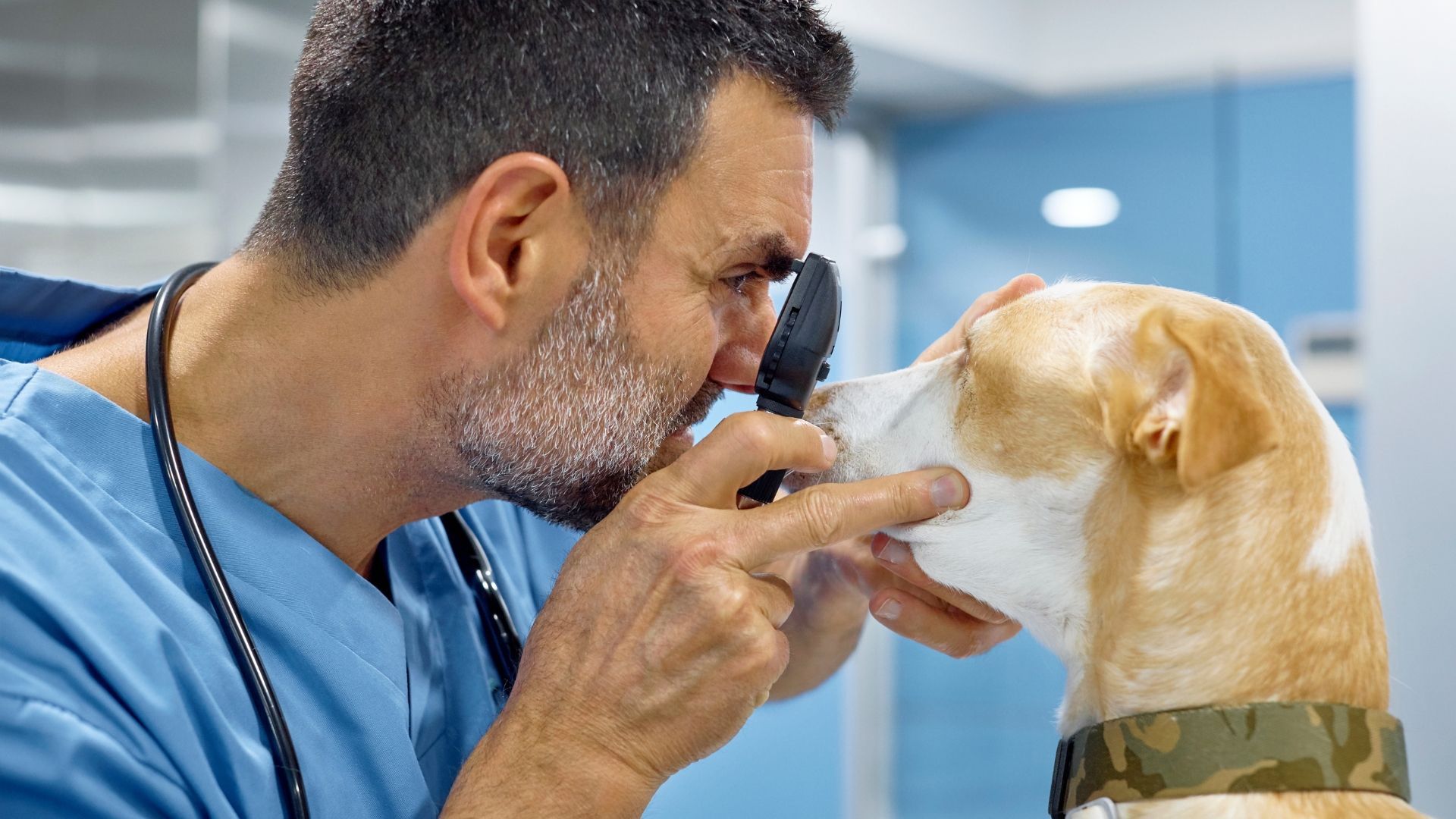BLOG

Specialization in veterinary medicine plays a major role in delivering exceptional care to pets. One specific specialization is a veterinary ophthalmologist. A veterinary ophthalmologist is dedicated to diagnosing and treating eye conditions in animals. If you're considering a career in veterinary medicine or are curious about the role of a veterinary ophthalmologist, here’s a closer look at the work of a veterinary ophthalmologist.
What Is a Veterinary Ophthalmologist?
A veterinary ophthalmologist is a veterinarian who has completed advanced training and education in ophthalmology, focusing on the eyes and visual system of animals. This specialization requires additional years of study beyond veterinary school, including internships and residency programs. Veterinary ophthalmologists offer expertise in handling a wide range of eye conditions and diseases in various animal species.
What Does a Veterinary Ophthalmologist do?
1. Diagnosing Eye Conditions
Veterinary ophthalmologists are experts in diagnosing complex eye conditions in animals. Using advanced diagnostic tools, such as slit lamps, tonometers, and fluorescein stain tests, they can identify issues such as cataracts, glaucoma, retinal diseases, and corneal ulcers. Accurate diagnosis is necessary for developing an effective treatment plan.
2. Performing Surgical Procedures
Many eye conditions require surgery. Veterinary ophthalmologists are skilled in performing intricate eye surgeries, including cataract removal, corneal transplants, and corrective procedures for eyelid abnormalities. Their precision and expertise are essential for successful outcomes and the preservation of vision.
3. Managing Chronic Eye Conditions
Chronic eye conditions, such as progressive retinal atrophy or chronic conjunctivitis, require ongoing management and treatment. Veterinary ophthalmologists develop long-term care plans, including medication regimens and lifestyle adjustments, to ensure the best quality of life for their patients.
4. Collaborating with Other Veterinary Specialists
Veterinary ophthalmologists often work closely with other specialists, such as internal medicine veterinarians, oncologists, and surgeons, to provide comprehensive care. Their expertise is important in cases where eye conditions are secondary to systemic diseases.
5. Educating Pet Owners
Part of a veterinary ophthalmologist’s role involves educating pet owners about their pets' eye conditions and treatment options. They provide valuable information on managing and preventing eye problems, making sure that owners are well-informed and involved in their pets' care.
The Importance of Veterinary Ophthalmology in Pet Health
1. Quality of Life
Eye conditions can significantly impact a pet’s quality of life, affecting their ability to see, play, and interact with their environment. Veterinary ophthalmologists help restore and maintain the vision of their patients by diagnosing and treating these conditions.
2. Preventing Vision Loss
Early detection and treatment of eye conditions can prevent or minimize vision loss in pets. Veterinary ophthalmologists are skilled in identifying issues before they become severe.
3. Supporting Veterinary Practices
Veterinary ophthalmologists support general veterinary practices by providing specialized care for eye issues. Their expertise helps elevate the standard of care within the veterinary community, benefiting both pets and their owners.
Pursuing a Career as a Veterinary Ophthalmologist
For those interested in a career as a veterinary ophthalmologist, it's essential to have a passion for animal care, a strong foundation in veterinary medicine, and a commitment to advanced education and training. Veterinary Recruiting and Staffing Solutions can help connect ophthalmologists with opportunities for internships and positions in veterinary hospitals.
Connecting Veterinary Practices and Veterinary Professionals
At Veterinary Recruiting and Staffing Solutions, we are committed to helping veterinary professionals find their ideal career paths and connect with the right opportunities.
Contact us today to learn more about how we can support your goals.
